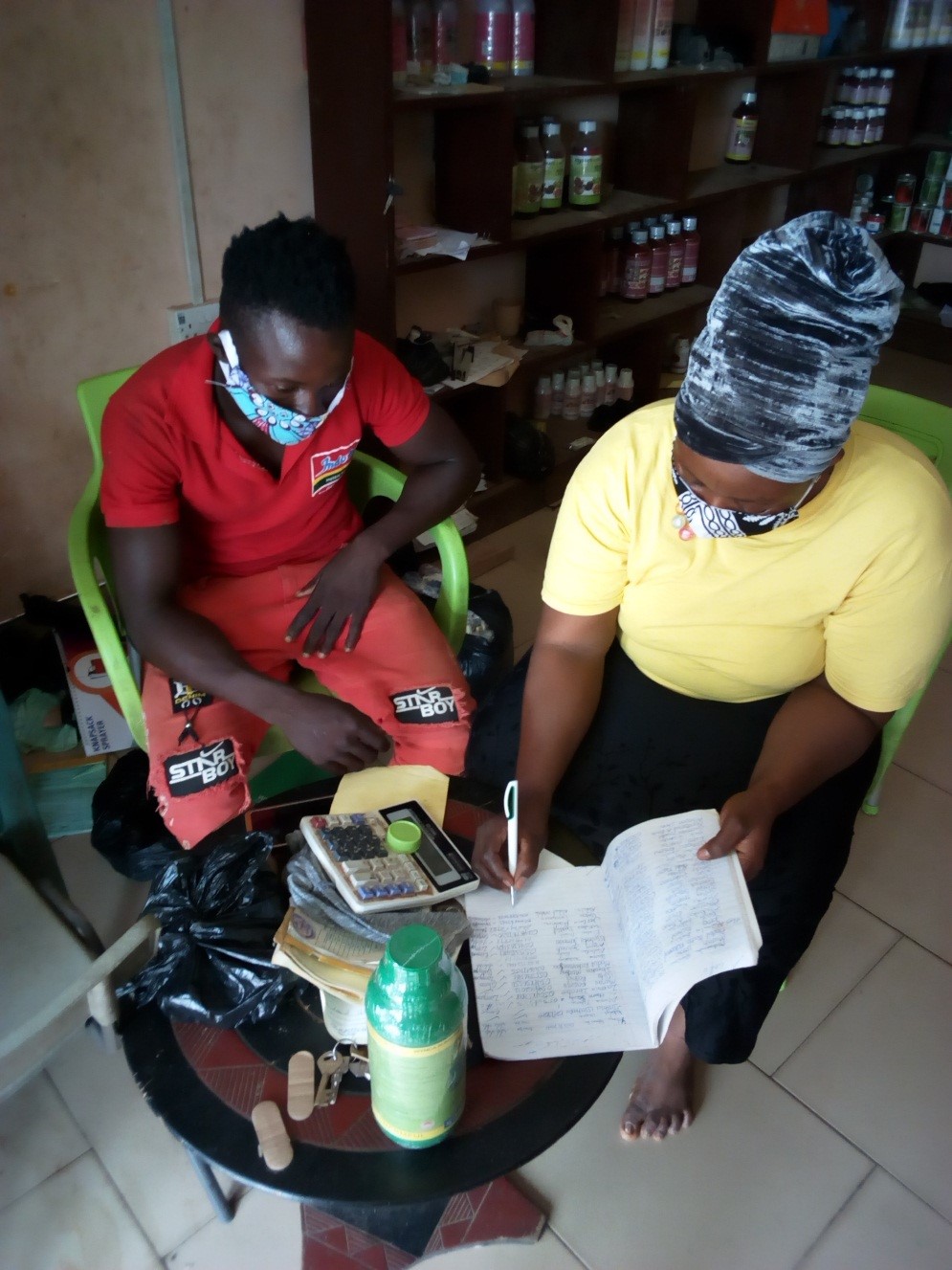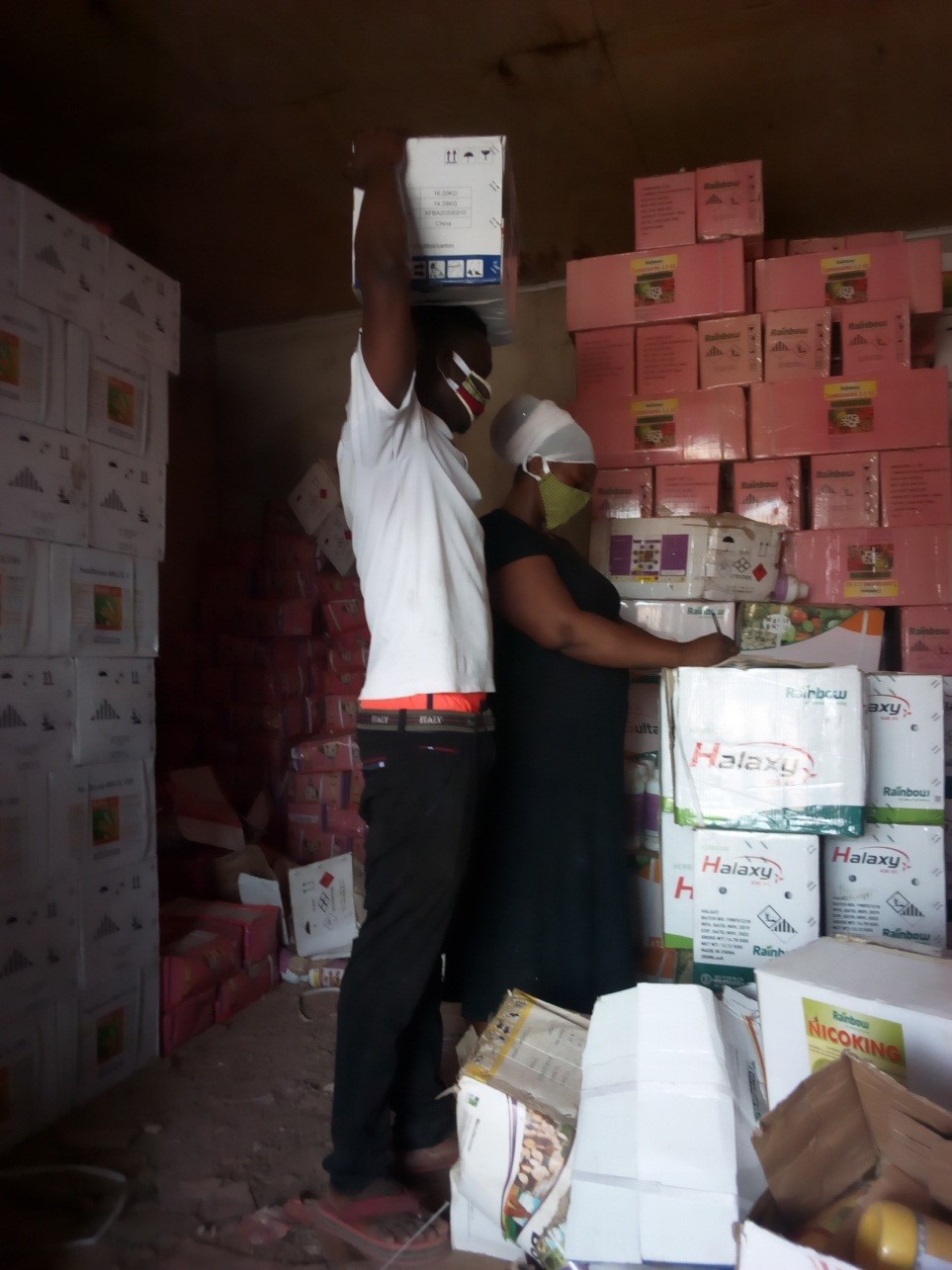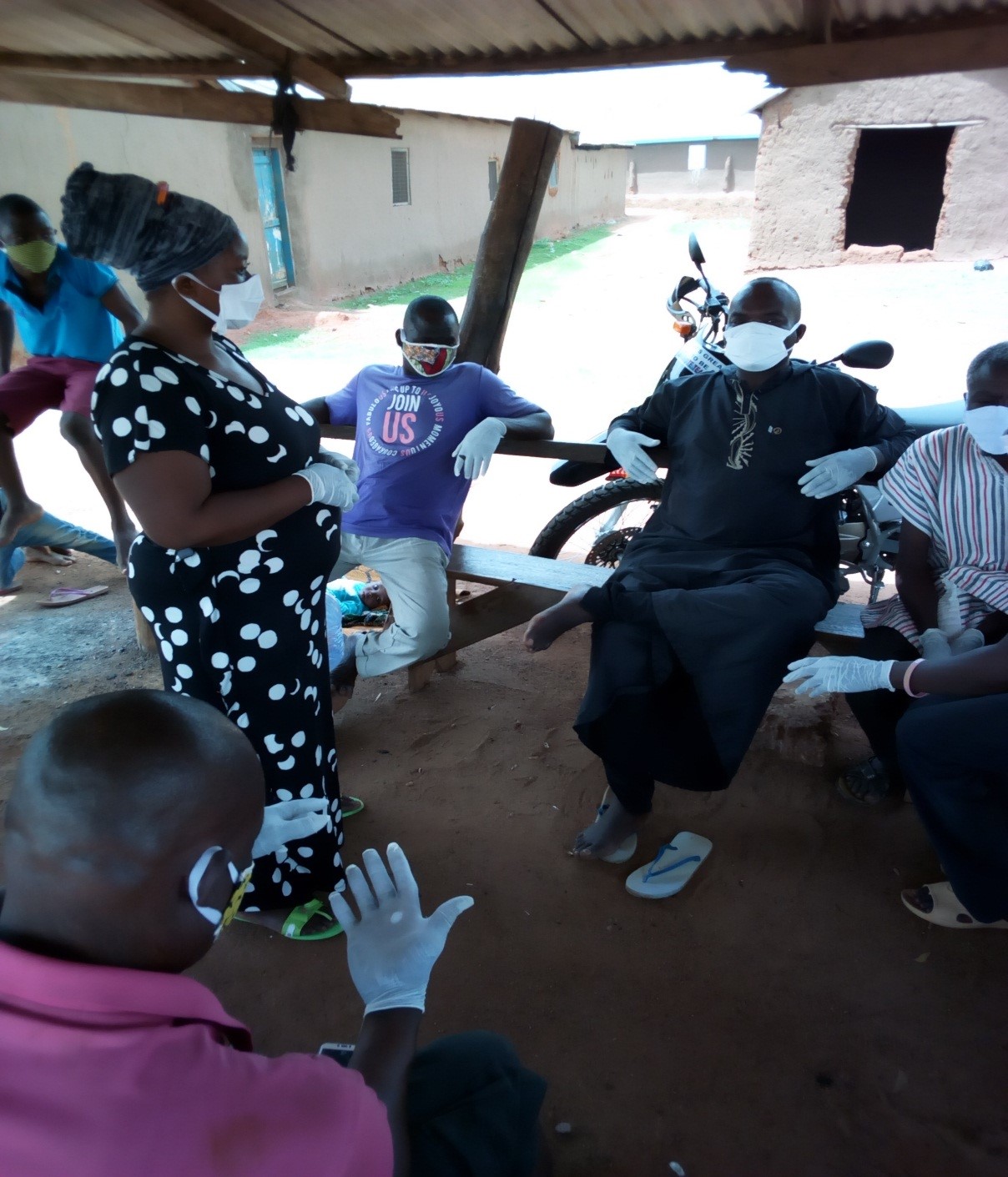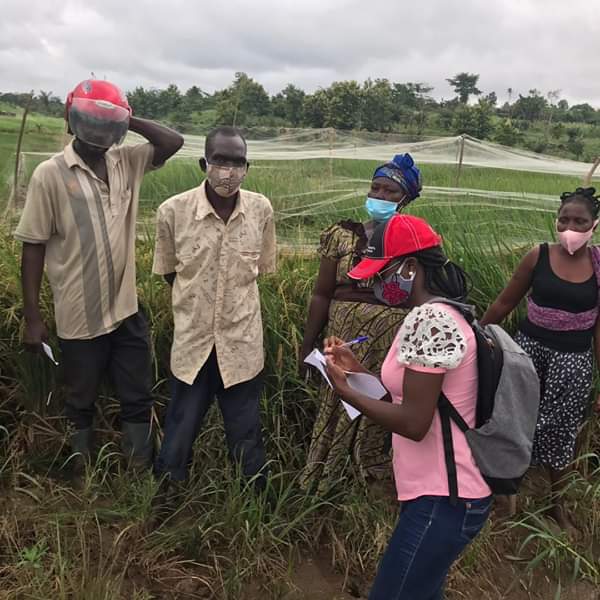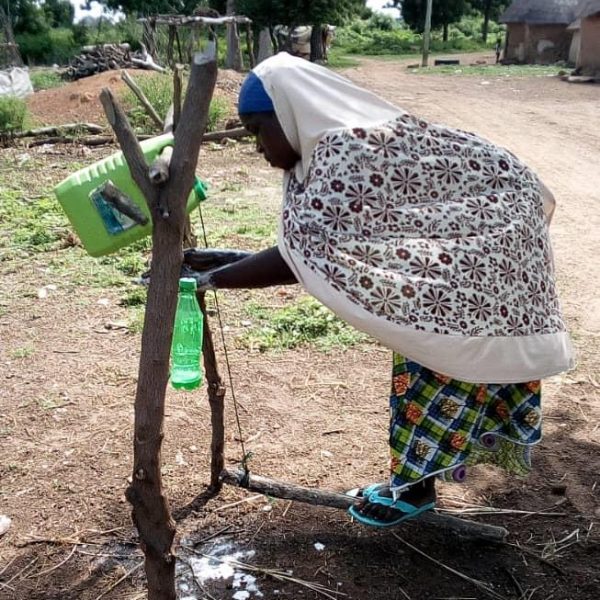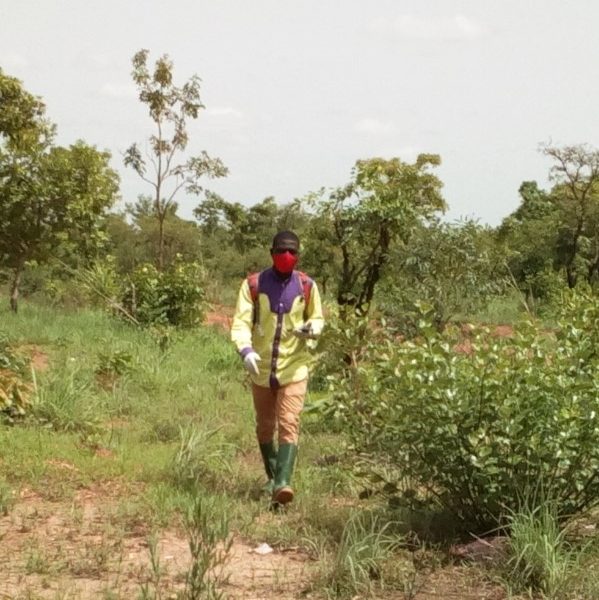Participants in MADE’s graduate internship programme spent four weeks with partner agribusinesses, travelling to smallholder farmer communities with information on COVID-19 preparedness as well as good agricultural practices. This guest series presents their experiences in the field in their own words and photos.
I was sent to Azabu Nbebani Enterprise as part of the internship program. It was a great experience. During my stay, I learned a few things.
Firstly, I learned how Azabu Nbebani Enterprise, as a business, keep their records. My interactions with Mr. Latif, the CEO of the business, revealed that they take stock at the beginning of each month and record their daily sales in a logbook.
At the end of each month the business makes account of sales made. Mr. Latif reviews the records, summarises it and puts it in the computer as a soft copy. The business also makes sure all invoices are scanned and put in the record-keeping computer. This is repeated each month and a general review is done at the end of the season.
I also learned something about customer care at Azabu Nbebani Enterprise. The way customers are cared for is inspiring. The salesperson welcomes each customer and asks them what they want. They ask the customer the purpose for which they are buying an input, and ask for their time to take them through the application patiently.
During the COVID-19 pandemic, the business has provided a Veronica bucket at the entry point of the shop to allow staff and customers to wash their hands under running water. During my stay, a few farmers who came without nose masks to protect themselves and others during the pandemic were provided with some as part of the business’s customer care package.
Finally, I had the privilege to learn something about how farmers manage their groups. Most farmers in the villages are in cluster groups. When I interacted with some lead farmers, I was made to understand that they organise meetings every two weeks and discuss their problems and input needs. They try to find solutions to each other’s problems, and they mobilise their money and call on the input dealer to supply them with the inputs their members need. They added that they sometimes help each other in terms of labour on their farms. Members expressed their satisfaction with how the groups are managed.

